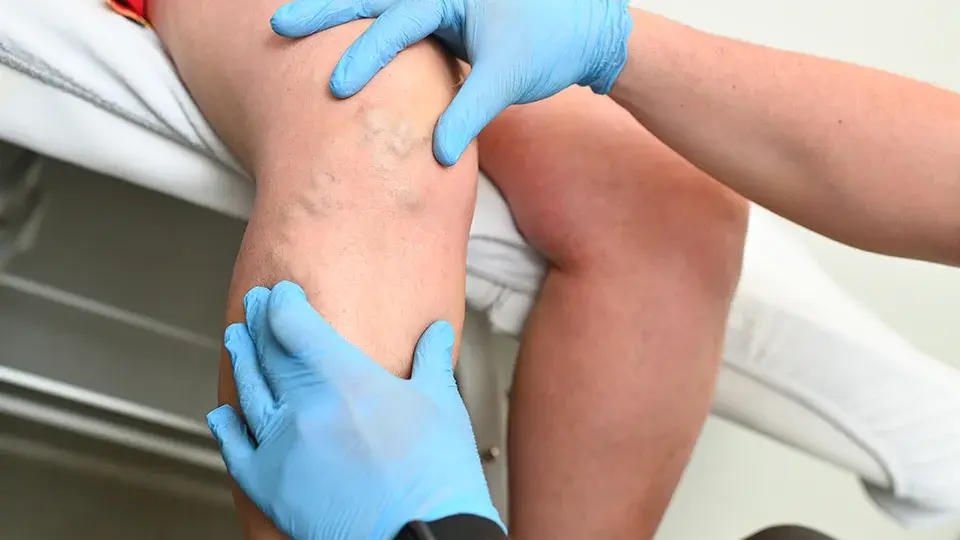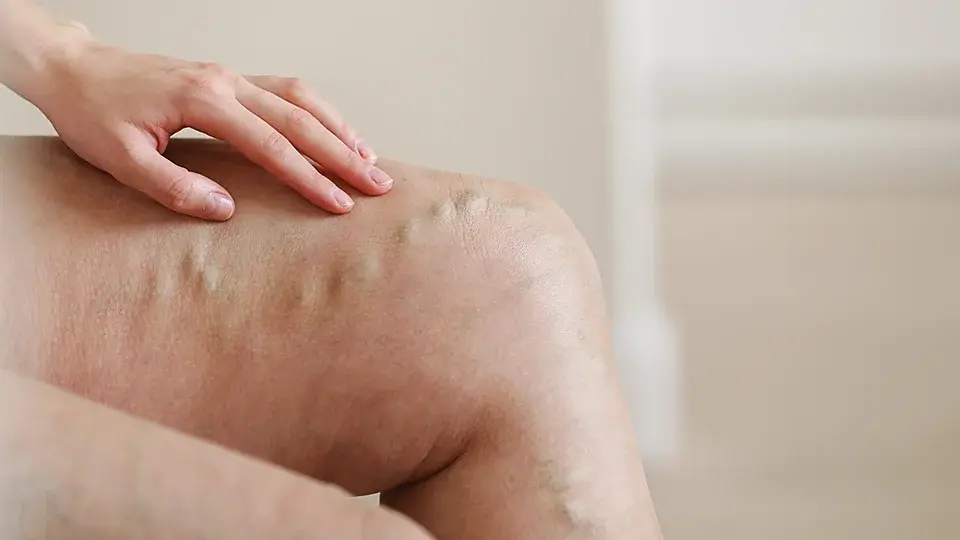What Exactly are Varicose Veins?
What exactly are Varicose Veins?
Varicose veins are enlarged, twisted veins that bulge just beneath the surface of the skin, typically appearing on the legs. These unsightly and sometimes uncomfortable veins develop due to malfunctioning valves within them. Normally, these valves ensure blood flows upwards towards the heart. However, when faulty, blood can pool in the veins, causing them to stretch and become varicose.


Several factors can increase your risk of developing varicose veins, including
Heredity: If a close family member has varicose veins, you are more likely to develop them as well.
Pregnancy: Hormonal changes during pregnancy can weaken vein walls and valves.
Age: As we age, the valves in our veins naturally weaken, increasing the risk.
Obesity: Excess weight puts additional strain on the veins in the legs.
Occupations requiring prolonged standing or sitting: This can impede blood flow and contribute to varicose veins.
While some people with varicose veins may not experience any symptoms, common signs include:
Visible, bulging veins on the legs: These can be blue, purple, or red and may appear like spiderwebs or cords.
Aching or heavy feeling in the legs, especially at the end of the day: This discomfort can worsen with prolonged standing or sitting.
Fatigue: A general feeling of tiredness in the legs can be a sign of varicose veins.
Itching around the veins, which can worsen at night: This itching can be intense and lead to skin irritation if scratched.
Swelling in the ankles, particularly noticeable after standing or sitting for long periods: This swelling can improve with elevation of the legs.
Skin discoloration near the affected veins, such as a brownish or reddish tint: This discoloration can be a sign of long-term damage from varicose veins.
Don’t let vein issues affect your life.
Book a call with us
If you experience any of these symptoms, it’s important to consult a qualified vascular specialist. Early diagnosis and treatment can help prevent complications like skin ulcers and blood clots. Treatment options range from simple lifestyle modifications like compression stockings and exercise to minimally invasive procedures like sclerotherapy or laser treatment. In severe cases, surgery might be necessary. Consulting a specialist at Veins and Foot Clinic in Chennai can help you determine the best course of action for managing your varicose veins. They can create a personalized treatment plan based on the severity of your condition and your overall health. Early intervention is key to preventing further complications and improving your quality of life.
Conditions We Treat
- Varicose veins
- Superficial Venous Thrombosis Phlebitis
- Thread / spider veins
- Swollen leg
- Deep vein thrombosis (DVT)
- May turners syndrome
- Varicose veins in pregnancy
- Varicose veins in obese patients
- Restless leg syndrome
- Varicose veins of the testicles
- Recurrent Varicose Veins
- Hidden Varicose Veins
- Hemosiderin Brown Stains
- Lipo dermatosclerosis (LDS)
- Venous Eczema
- Leg Ulcers
- Vaginal and Vulval Varicose Veins
- Pelvic Congestion Syndrome (PCS)

